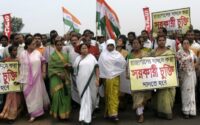RAKESH MALHOTRA V. GNCTD: UNFAIR TO EXPECT CHILDREN ORPHANED DUE TO COVID TO PROCURE DOCUMENTS FOR AVAILING BENEFITS UNDER WELFARE SCHEMES: DELHI HC
This article is written by A.Siva Sangari from VIT Chennai
FACTS AND ISSUES BEFORE THE COURT:
The court is concerned about the case of a family, having 7 children and due to covid; they lost both their parents this year.Kaur noted that the children, two of whom were older and one of the children was male and the other was women, it was difficult to meet their demands and that the Delhi government’s social security policy had not been implemented. Though the children were properly provided, with all the basic requirements and school textbooks by the child welfare committee, they still need a lot of care and support and are unlikely to be able to come to the committee repeatedly to meet their daily needs, requirements, and medication. Kaur went on to say that the brothers were given a one-time grant of ₹ 10,000 and offered a small job that one of them had to accept to meet their daily needs as no relative would take care of them.However, Attorney General Rahul Mehra from the Delhi Government has presented before the Court that the implementation of the ex-gratia compensation scheme of Rs.50000 is consuming a lot of time because there is so much of verification process and so many confirmatory details that are necessary to be done and due to this, the period lead to further delays in the payment of compensation under the welfare plan.
Before moving to the court’s rulings, we should possess a necessary understanding of the motto of the juvenile justice act, 2015.
INTRODUCTION OF JJ ACT-2015:
The horrific incident of the “Nirbhaya Delhi Gang Rape Case”, on December 16, 2012, shocked the whole nation and many negotiations were started between legal and social organizations. The main reason and issue for the debate was the involvement of the suspects, who had only six months left to reach the age of 18. The defendant’s involvement in the heinous rape case forced Indian law to introduce a new law which is why the Indian Parliament introduced a new law known as Juvenile Justice (Care and Protection), 2015 and which came into force on January 15, 2016.
MAIN FEATURES OF THIS ACT:
- A change in the name from JUVENILE TO CHILD in conflict with law is actually due to this amendment
- The amendment also describes children who are orphaned, devoted, and abandoned.
- And it makes mandatory that all child care centres must be registered.
- This act also provides the official CARA status.
- This act is the most important in the aspect of dividing the concept of children in conflict with the law and children in need of care and attention
- This practice greatly allows children between the ages of 16-18 to be prosecuted as adults if they are found guilty of serious misconduct.
- In each district, a juvenile justice board will be formed and a social welfare committee will be constituted.
- JJB’s task is to conduct an initial investigation to determine whether the offender should be referred for rehabilitation or trial as an adult.
- A child in need of institutional care and protection will be determined by the CWC.
- Under the previous Act, anyone who is a minor, regardless of how much crime he or she has committed, can only be sentenced to three years’ imprisonment. The case should not be tried in an adult court or sent to an adult prison or given a fine of more than three years. However, this changed with the 2015 amendment. All children under the age of 18 will be treated equally except for a single normal walk that is, in the event of a serious crime. Anyone who is 16 – 18 years old and accused of committing a serious crime can be tried as an adult. In this regard, the Juvenile Justice Board will look at the child’s physical and mental abilities, its ability to understand the consequences of crime, etc., and determine whether the child can be treated as an adult.
- The Central Adoption Resource Agency will set rules and regulations for the adoption of orphaned children. Intermittent adoption is allowed where no Indian adoptive parents are present within 30 days of the adoption of the child.
- The adoptive parents must be financially and physically sound. An unmarried or divorced person can take a child. An unmarried man cannot take a baby girl. Children with disabilities will be given priority to adoption.
- Children in need of care and protection may be allowed to be placed in a child care facility as per CWC instructions. The choice of adoption family is based on the family’s ability, purpose, strength, and previous childcare experience.
OBJECTIVES OF THIS ACT:
- It lays down a basic goal of administering justice to a child or child in action
- This act makes this action more sensitive to developmental needs in contrast to the justice system that works for older persons.
- It has risen the uniform age of boys and girls.
- It is present to ensure that the case is dismissed within four months thus guaranteeing the basic right to a speedy trial included under Articles 21 of the Indian constitution.
- It creates a new specialized police force with a sense of humanity and conscience by assisting and training police officers.
- Increasing juvenile access through JJB and CWC.
- To reduce stigma and compliance with the child’s developmental needs, it was advised to divide the act into two parts: a) Children in conflict with the law b) Children in need of care and protection.
COURT’S RULINGS:
The Delhi High Court on Monday ruled that it would not be appropriate for children, who lost one or both of their parents, as a result of Covid-19 to obtain documents to receive benefits under various social welfare programs established by the Delhi Government. Taking note of the issues regarding the verification process for such applications, Justice Vipin Sanghi and Judge Jasmeet Singh also directed the Secretary-General of the Delhi Government to submit a status report on the process of dealing with social programs under the Juvenile Justice Act. And the bench also expects the Secretary-General to dismiss these issues after holding a meeting with the relevant stakeholders including the Secretary-General of the Department of Women and Children and the Department of Social Development.Given the alleged incident, the Court said: “Since schemes have been set up to provide benefits to children, the government’s approach should be to act appropriately rather than to make such claims in the normal way.” Earlier, the Court issued several guidelines to the GNCTD to ensure compliance with the provisions of the Juvenile Justice Act, 2015 in the idea of protecting affected children. It is noted that the Delhi Government has not opened the truth by coming up with adequate measures to protect the rights of children and that there has been a complete overhaul of the Delhi Government departments.
This article is edited by Dhruv Kapoor, FIMT, affiliated to GGSIPU, Delhi
REFERENCES:


